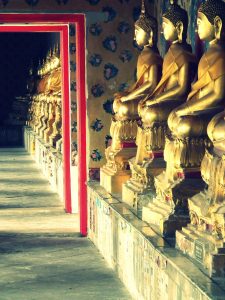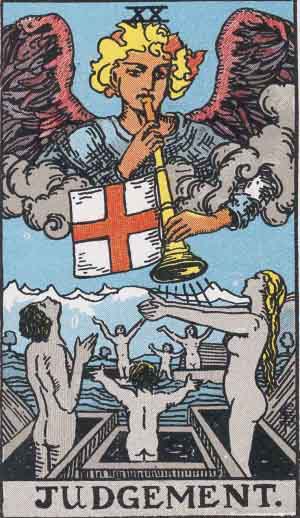

For example, now you are researching the esoteric meaning of the number 20, you will learn that the number 20 is the “start of a spiritual journey which will bring success”.
This is nice knowledge to have but is an exoteric interpretation designed to give people hope and encouragement. Essentially, exoteric interpretation tells you what you want to hear.
Whilst exoteric interpretation is not wrong, the descriptions only furnish you with a fragment of the information. Subsequently, the information is misleading.
And that can be harmful. At best it’s useless.
Master Mind Content provides you with the full esoteric interpretation of ancient symbolism. In our in-depth articles, we explain how we reach our conclusions, and also provide advice that we hope will help you come to terms with the experiences you are having.
At the very least, we can explain why you keep seeing the number 20 right now.
However, if you do need more guidance to understand why the number 20 is recurring in your life at this moment, we encourage you to contact us for a consultation. We are better placed to help you in a face-to-face Skype chat because we can help you reach an understanding.
In the meantime, this general overview of the symbolic meaning of the number 20 can be used as a starting point. We trust you will find the information we offer is beneficial to you.
Everything is energy, and energy vibrates. Numbers reflect the vibrations of energy in humans that ultimately manifests as our reality; experiences, personality and belief systems.
The wise sages of antiquity that coded symbolism, gave numbers a meaning. Numbers also follow a cycle hence the numerical system of 0-9 which leads to 10 which is the zero and one from which all other numbers follow.
The twenty, of course, is the end of the second cycle. As exoteric symbolism explains, the 20 does represent the start of a spiritual journey (or stage of life), but it is the next phase and twice greater than the first phase which is reflected in the vibrational power of ten.

Numerologists relate numbers to 20 personalities, and whilst I do not believe numerology is a reliable source of symbolism, it does offer some clues with regards the qualities of character you need to nurture to handle the challenges we face in life.
The 20 vibration is associated with judgement and the need to be patient. It is believed in numerology that people born on the 20th of the month are highly sensitive and prone to anxiety and turmoil. They can also be needy.
When you apply this interpretation given in numerology, most people will inevitably recognise it in themselves. The reason for this is because there are times in your life where you feel anxious and restless.
If you observe when you are feeling this way, it will be the times when you are in the interim period between the end of one life cycle and the beginning of another.
Sometimes, these cycles are obvious; waiting for exam results, to hear from an interview or a lover. Other times, life cycles are subtle. So if you do feel restless and you’re not sure why, contemplate what’s been happening in your life and determine if it is coming to an end.
Remember that everything is energy. You are transforming and projecting energies all the time and they can relate to different aspects of your life. Eventually, they will manifest as reality.
Perhaps you’ve heard the saying, “Where attention goes, energy flows.” If you are having good luck or bad luck around the time you are seeing the number 20, ask yourself what energies you have been transforming recently because that is how you create your experiences.
Tarot is an ancient art that has been traced back to the Egyptians. It could be older. Whatever the case may be, there is no disputing the tarot is rich in symbolism, and when used correctly, is useful for providing you with guidance in your life.
If you look at the imagery of the Judgement card from the Rider-Waite tarot deck, you find naked people climbing out of coffins to the sound of heavenly trumpets.

This image alone tells you that new energies are emerging within you. The mountains in the background warn there could be obstacles in your future. A good tarot reader will tell you that when the Judgement card appears in a reading, it is a time for quiet introspection and self-evaluation.
It’s also interested to note the planetary ruler of the Judgement card is Pluto. This aligns with the Roman God Pluto, Lord of the underworld. The underworld represents the depth of your unconscious mind.
When considering the number twenty in tarot, it is also pertinent to identify the cards associated with two numbers. Zero is the card of The Fool which represents new beginnings and 2 is the card of the High Priestess who represents intuition and the inner world of the unconscious mind.
The people rising from their graves in the Judgement card then represent the awakening of energies that are buried in your unconscious.
In the shortened “mobile version” of this article, I mentioned the German mystic, Jacob Boehme associated the number 20 with the Devil. However, all symbols have two meanings, positive and negative.
The Devil is often associated with all things evil. In symbolism, Satan represents the dark side of your nature – the destructive side. And there is undoubtedly a destructive side of human nature that is common in everyone.
The 20th Century psychoanalyst, Carl Jung called this destructive nature the ‘Shadow Self.’ Jung explains the shadow is a side of our personality that has been relegated to the unconscious. Every so often, the devil surfaces.
The Shadow Self is a product of our experiences. Psychologists believe that many of the demons stored in the unconscious are the suppression of thoughts and emotions you were not able to express when you were a child.
For example, when you are criticised or told not to do something, the mind reacts by hiding our negative qualities. We build psychological defences which leads to low self-esteem and the impulse to lie or embellish our achievements in the face of social stigmas.
The unconscious mind is also what gives you the impulse to do something or have cravings. This is why Boehme associates the number 20 with the Devil, because Satan is associated with leading people into temptation.
When repressed feelings emerge, you have to address them. If you continue to blindly ignore repressed emotions they continue to show themselves as negative qualities.
“That which we do not bring to consciousness appears in our lives as fate.”
Carl Jung
The “awakening” of repressed emotions often surfaces as criticism or condemning others. It pushes us towards drug addictions, materialism and the yearning to be loved in the form of shallow sexual relationships. They can cause anger, hate, jealousy and other reactions that destroy relationships.
When you confront your fears and negative attitudes, you can recover the parts of your personality that are lost. This is the process of self-realisation. Dissolve ego and you will find your true self – your Buddha Nature.
“The shadow, when it is realized, is the source of renewal; the new and productive impulse cannot come from established values of the ego. When there is an impasse, and sterile time in our lives—despite an adequate ego development—we must look to the dark, hitherto unacceptable side which has been at our conscious disposal”.
Carl Jung
When you examine ancient civilisations, it’s interesting to note that symbolism relating to the human psyche not only appears in myths, but throughout their culture as well.
A good example is the Mayan calendar. The Haab is also known as ‘burden of time’ and counts the mayan year of 20 days across 18 months. The Maya counted 365 in their solar calendar. The five spare days were considered bad luck and something you should be aware of.
In symbolism, the five is associated with the four elements of the natural world which merge into the fifth element. The four elements, water, fire, air and earth each represent aspects of our character.
These energies become manifest based on how we act and form our personality. You can read more about how the four elements shape our personality here.
The ‘burden of time’ is reflected in the imagery of the Haab. A man kneels in the centre of a circle surrounded by 19 glyphs, each of which represents a day of the month. The 20th glyph is strapped to his shoulders.
The circular shape of the Haab calendar reflects the cycles of life. Our never-ending journey of time plays out in a cosmic relay as energy transforms, transmutes and becomes manifest – the judgement of your past actions.
This concept is explained by the Mayanist, J. Eric S. Thompson in his book, The Rise and Fall of Maya Civilization:
“The Maya conceived of the divisions of time as burdens which were carried through all eternity by relays of bearers… [not] the journey of one bearer and his load, but of many bearers, each with his own division of time on his back.”
In the Haab, the Maya demonstrate the glyph carried at the end of a life cycle is ajaw, meaning the ruler, king or lord. In other words, it is the energy that becomes your reality, the person that you become.
So you see, the exoteric interpretation of the number 20 is not quite clear cut. Yes, it is the start of a new journey (phase of life) and it can bring success – but success only comes if you have transformed the negative traits of your character.
Esoteric symbolism explores the psyche and helps you to identify and become aware of your alter ego. When you find a balance between the dual sides of your nature, you find inner peace rather than suffering from internal battles.
